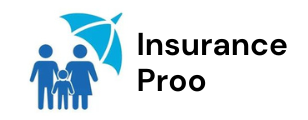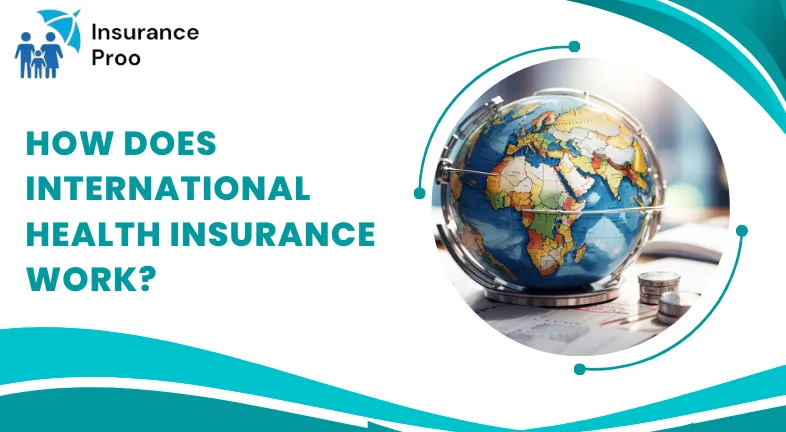QATAR INSURANCE COMPANY

When your car hits an unanticipated bump in the road, car insurance provides a literal and figurative safety net. You enter into a contract with an insurance provider, paying regular premiums in return for protection against liabilities, damages, and injuries resulting from theft, auto accidents, and other covered incidents.
Although choosing your coverage can be difficult, this in-depth guide will provide you with the information you need to make an informed selection.
One of the top insurance companies in the Middle East and North Africa (MENA) is Qatar Insurance Company (QIC). QIC serves clients for both traditional and Shariah-compliant insurance needs, and it has its headquarters in Doha, Qatar. This article explores QIC’s offerings, rules, and adherence to Islamic principles as it relates to Shariah compliance.
Comprehending Insurance that Complies with Shariah:
The cornerstone of Islamic banking, shariah law, forbids any activity containing riba (interest) or gharar (uncertainty). Both can be seen to be present in traditional insurance, with its premiums and possible returns. Takaful, or insurance that complies with Shariah, was created as a solution to this problem.
The shared responsibility and mutuality tenets underpin takaful. Every participant adds to a shared pool, from which losses are subtracted in accordance with established guidelines. with contrast to traditional insurance, where the insurer keeps all profits, with takaful, surplus money are divided among members once operating costs are met.
Shariah-compliant Offerings from QIC:
Through its subsidiary, Qatar Islamic Insurance Company (QIIC), QIC provides a wide range of insurance products that comply with Shariah. These goods address a number of topics, such as
- Motor insurance: Takaful-compliant insurance for cars, motorcycles, and commercial vehicles.
- Property insurance: Takaful-based protection for residential, commercial, and industrial properties.
- Medical insurance: Plans for health insurance that adhere to Shariah regulations.
- Travel insurance: Shariah-compliant trip protection schemes.
- Accident insurance: Takaful-compliant coverage for fatalities or injuries.
Shariah supervision and the regulatory framework:

Renowned Islamic scholars monitor a dedicated Shariah Board that is in charge of ensuring QIC’s Takaful products comply with Shariah. This Board ensures that all Takaful operations and goods follow Shariah standards by reviewing and approving them.
Furthermore, QIC functions within the regulatory purview of the Qatar Central Bank (QCB), which stipulates certain directives for insurance companies that adhere to Shariah. These rules address things like profit allocation, risk management, and product design.
Openness and Reporting:
Transparency is a key component of QIC’s Takaful operations. It disperses profits, handles claims, and reports on financial performance on a regular basis on its Takaful company. Participants are able to comprehend the Takaful pool’s financial situation and the allocation of their contributions thanks to this transparency.
Opportunities and Difficulties:
Even though QIC has come a long way in providing insurance that complies with Shariah, difficulties still exist. It is imperative that the public be made aware of the advantages of Takaful over traditional insurance. Sustained success also depends on creating novel Takaful products that address changing consumer demands and industry developments.
Important Qualities of QIC Takaful Goods:

No Riba: Interest-based transactions are not used in QIC Takaful products. Rather, they employ agency (wakala) and profit-sharing (mudarabah) structures. By paying premiums, participants invest in the common pool. Participants share any earnings made from ethical investments according to predetermined profit-sharing percentages.
Risk Sharing: QIC Takaful bases its operations on the idea of joint risk-taking. Contributions are made to a common pool by participants, and losses are distributed proportionately to those contributions. Mutual responsibility and a sense of community are fostered by this.
Ethical Investments: QIC Takaful invests participant funds in Shariah-compliant ventures, steering clear of sectors that are illegal under Islamic law, including traditional banking, alcohol, and gambling. This guarantees that the investments are in line with participant beliefs and ethical standards.
Openness and Disclosure: Openness and disclosure are given top priority at QIC Takaful. To help participants make wise decisions, they provide a detailed explanation of the profit-sharing model, investing techniques, and the hazards related to their products.
Beyond Products: A Comprehensive Strategy

QIC is dedicated to adhering to Shariah regulations in addition to providing products. They operate according to the precepts of Shariah in every way, which includes: Corporate Governance: To ensure independent decision-making in accordance with Shariah principles, QIC Takaful keeps a distinct board of directors and management staff.
Human Resources: QIC Takaful promotes an ethical work environment that honors Islamic principles.
Social responsibility: QIC Takaful promotes neighborhood projects that uphold Shariah principles and advance social progress.
In the future, QIC Takaful will be in a strong position to overcome these obstacles and advance the growth of the insurance industry that complies with Shariah. They can maintain their leadership position in the area and meet the demands of Muslim populations looking for financial stability in line with their religious beliefs by utilizing their powerful brand, dedication to innovation, and emphasis on ethical business practices.
CONCLUSION:
Through its specialized subsidiary, QIIC, Qatar Insurance Company demonstrates its dedication to meeting both traditional and Shariah-compliant insurance needs. QIC serves a growing part of the market that is looking for insurance solutions that are in line with their Islamic values by providing a variety of Takaful products. QIC establishes itself as a pioneer in the Shariah- compliant insurance market with a robust regulatory structure, Shariah Board supervision, and open reporting procedures. To reach a wider audience and meet changing market demands, though, innovation and ongoing education are essential.











